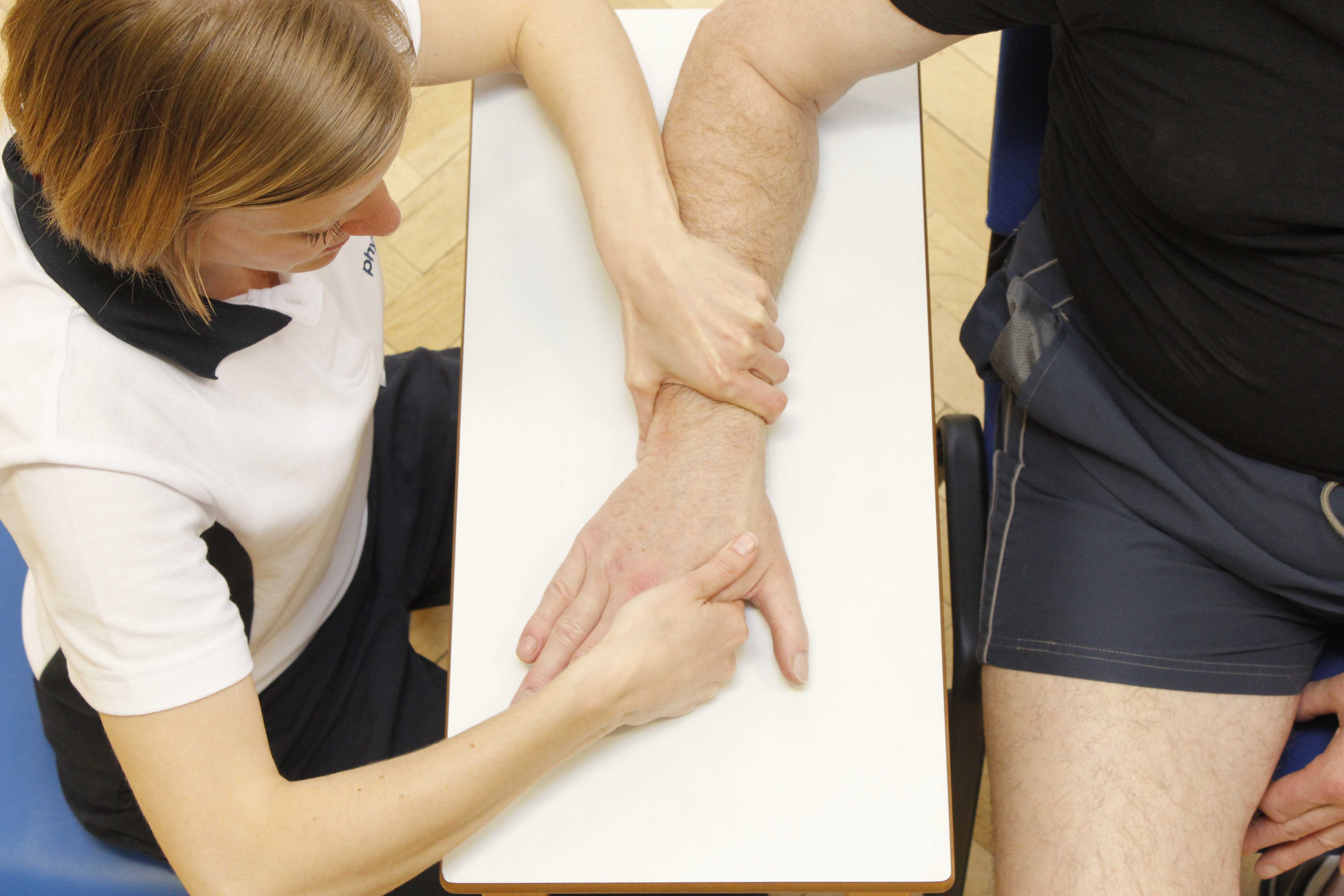Trigger Finger Release in the Hand
Trigger finger, or stenosing tenosynovitis, is a condition which affects the movement of your tendons. Tendons are thick cord like structures of fibrous tissue that connect your bones to yourmuscles. Trigger finger develops in the tendons connecting the bones of your fingers to the muscles of your forearm. Your tendons are surrounded by a sheath which lubricates these tendons preventing friction when you move your fingers and thumb.This condition arises when the sheath that surrounds your tendon becomes inflamed and thickened preventing the normal movement of the joints. As you bend your finger, the tendon gets stuck within the sheath at the base of your finger and a painful click, or trigger, is heard when straightening. Occasionally the finger will be unable to bend properly and in other instances the tendon itself can develop a nodule (knot) which catches on the sheath. Trigger finger usually affects your thumb, middle or ring finger however it can affect more than one finger at once as well as both hands.Diabetes and rheumatoid arthritis are predisposing factors however in most cases the cause is unknown.
 Above: Mobilisation of the hand and fingers by MSK Physiotherapist
Above: Mobilisation of the hand and fingers by MSK PhysiotherapistCommon symptoms include:
- Stiffness and painful click when straightening your finger.
- Palpable nodule at the base of your finger.
- Swelling
- If the condition worsens your finger may become fixed in a bent position.
Trigger finger release surgery is a minimally invasive procedure which prevents permanent fixation of the joint and helps to reduce pain and stiffness. Here, an incision is made in the palm of your hand at the base of your finger to expose the tendon. The tendon sheath which surrounds the tendon is then cut, releasing the tendon and allowing it to move freely. Your hand will then be stitched and bandaged.
Following trigger finger release surgery, Physio.co.uk will help to restore full, pain free range of movement.
Symptoms afterTrigger Finger ReleaseSurgery
Following trigger finger release surgery it is normal for you to experience certain symptoms which are characteristic of this surgery. These include:
- Swelling
- Pain
- Stiffness
- Reduced Range of movement and strength
Physiotherapy after Trigger Finger ReleaseSurgery
Physio.co.uk will assess your hand during your first session and then design a personal rehabilitation programme specific to the symptoms and problems that you present with. Treatment will focus on restoration of functional hand and finger movements, strengthening and prevention of repeated contractures. Treatment can begin immediately following surgery and full recovery can be seen within three weeks.
Days 0-7
Initial treatment is focussed on minimising pain and swelling following surgery and to encourage the use of your finger in a normal way. Through early encouragement, end stage rehabilitation becomes easier and the restoration of a fully functioning hand is more complete. Treatment will include:
- Cryotherapy (Ice)
- Analgesia (pain killers)
- Passive range of movement exercises
- Gentle active finger range of movement exercises
- Wrist range of movement exercises
- Wound monitoring
- Splint use – these can be fixed at varying lengths as to give a constant stretch on the tendon in order to improve range of movement and reduce stiffness.
- Advice
Week 1-3
Following your initial treatment, rehabilitation will become more intense as to ensure you gain full function of your hand. Physio.co.uk will adapt progress your treatment in a way that is specific to your needs and optimises your recovery. Treatment will consist of:
- Heat therapy
- Soft tissue massage and friction massage
- Progressive finger and grip strengthening exercises
- Progressive active and passive finger range of movement exercises
- Stretching of tight structures
- Ultrasound therapy
- Splint wearing
Week 3+
After three weeks of intense physiotherapy through Physio.co.uk you will have achieved a significant improvement of function of your hand with a major increase in range of movement and strength. Management after this stage will include:
- Scar Management
- Soft Tissue Release
- Maintenance of strength and range of movement
- Advice on long term maintenance
Summary
Stenosing tenosynovitis is a common condition characterised by inflammation and thickening of the synovial sheath that surrounds your tendons. This causes your tendon to become trapped, fixing your finger in a bent position. This condition can result in disabling hand function and in order to prevent this surgery is often required to release this tightness. Following surgery, physiotherapy is an essential component of rehabilitation allowing for full functional restoration of your hand. Physio.co.uk provide a comprehensive rehabilitation programme to reduce post surgical complications and restore full hand and finger function helping you achieve a rapid and full return to your daily activities and hobbies. Call Physio.co.uk now on 0330 088 7800 for more information or to book an appointment please contact us.

 0330 088 7800
0330 088 7800

































